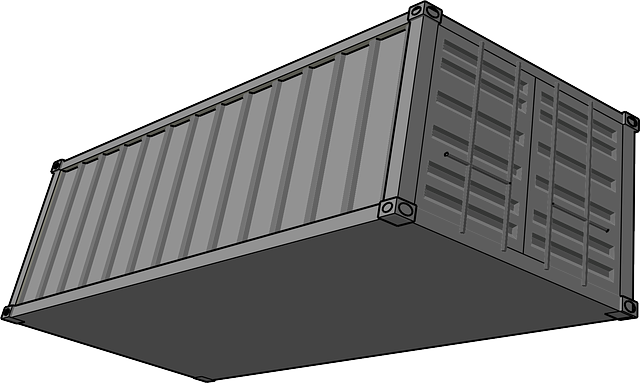Rented vehicle insurance protects against financial loss from damage or theft while renting a truck. Coverage includes collision, comprehensive, and liability claims but excludes wear & tear, neglect, and modifications. Policies vary in deductibles and exclusions; understanding these details is crucial for making informed decisions. Short-term rentals usually offer basic coverage, while long-term agreements provide more comprehensive plans. Comparing options from rental companies and third-party providers ensures strategic choices that balance cost and peace of mind.
When renting a truck, understanding your coverage options is crucial. This article guides you through tailored plans for rental truck protection, offering insights into what rented vehicle insurance covers and what’s excluded. We explore factors to consider while choosing protection plans, highlighting short-term and long-term rental coverage options. Additionally, we provide tips for making informed decisions to maximize your benefits and navigate potential risks effectively.
- Understanding Rental Vehicle Insurance: What It Covers and Exclusions
- Factors to Consider When Choosing Rental Truck Protection Plans
- Types of Coverage Options for Short-Term and Long-Term Rentals
- Tips for Making Informed Decisions and Maximizing Your Rental Truck Insurance Benefits
Understanding Rental Vehicle Insurance: What It Covers and Exclusions

Rented vehicle insurance, also known as rental car insurance, is designed to protect individuals and businesses from financial loss in case of damage or theft while renting a vehicle. It’s crucial to understand what this type of insurance covers and what exclusions it may have, as this knowledge can help you make informed decisions when renting a truck.
Typically, rented vehicle insurance provides coverage for physical damage to the rental vehicle, including collision and comprehensive damage. It also usually includes liability coverage, which protects against claims made by others if you’re found responsible for an accident. However, it’s important to note that certain events are excluded from this coverage. For instance, most policies do not cover wear and tear, loss due to neglect, or damages caused by inappropriate use or modification of the vehicle. Additionally, some insurance plans may have deductibles, meaning you’ll be responsible for a portion of the repair costs.
Factors to Consider When Choosing Rental Truck Protection Plans

When considering rental truck protection plans, several key factors should guide your decision. First and foremost, understand the coverage offered by your chosen plan. Different options vary in scope, from basic liability to comprehensive, each addressing different risk levels. Additionally, consider the cost implications; while some plans offer attractive discounts, they might not fully protect you against significant damages or losses.
Secondly, evaluate the specific needs of your rental. Factors like the type of cargo, distance traveled, and road conditions can influence the potential risks. Ensure the plan accounts for these variables to provide adequate protection. Moreover, check if the plan includes rental vehicle insurance, which can shield you from financial burdens arising from accidents or damage to the truck, offering peace of mind during your rental period.
Types of Coverage Options for Short-Term and Long-Term Rentals

When considering tailored plans for rental truck protection, understanding coverage options is key, especially for short-term and long-term rentals. For short-term rentals, basic rented vehicle insurance typically includes liability coverage, which protects against damage to other properties or injuries to others, as well as personal injury protection (PIP) that covers medical expenses for the driver and passengers. However, this standard coverage may not suffice for high-value trucks or specialized equipment.
Long-term rental agreements often come with more comprehensive insurance plans. These can include collision damage waiver (CDW), which waives charges for accidental damage to the vehicle, and loss of use, compensating renters for revenue lost due to an accident. Some policies also offer additional protections like roadside assistance, rental reimbursement, and specific coverage for cargo or equipment carried in the truck. Choosing the right coverage depends on factors such as rental duration, vehicle type, intended use, and personal insurance needs.
Tips for Making Informed Decisions and Maximizing Your Rental Truck Insurance Benefits

When considering tailored plans for rental truck protection, making informed decisions is paramount. Start by understanding the basics of rented vehicle insurance and its various components. Different policies cover different risks, from liability for damages to theft or loss. Knowing what’s included in your coverage and what isn’t will help you choose the best plan for your needs. Compare options offered by various rental companies and third-party providers, looking at both cost and scope of protection.
To maximize your rental truck insurance benefits, pay attention to deductibles and exclusions. Higher deductibles typically lower premiums but require a larger out-of-pocket expense in case of an incident. Exclusions vary between policies, so ensure you’re aware of what’s not covered, such as certain types of damage or use cases. Understanding these details enables you to make strategic decisions, balancing cost and peace of mind, ultimately leading to more effective protection for your rented vehicle.
When considering tailored plans for rental truck protection, understanding your needs and comparing various coverage options is key. By familiarizing yourself with rented vehicle insurance, its inclusions, and exclusions, you can make informed decisions that maximize your benefits. Remember to weigh factors like duration of the rental, potential risks involved, and specific protections offered by different plans. Ultimately, choosing the right rental truck protection ensures peace of mind while on the road, allowing you to focus on enjoying your journey without unexpected financial burdens.
